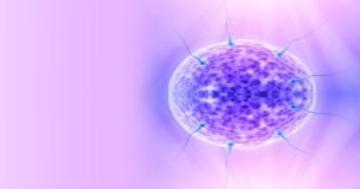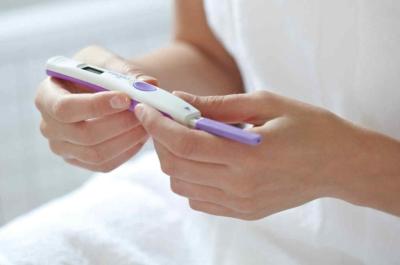We’ll help you find out the truth.

We tackle the most popular myths about getting pregnant and help you find the truth by giving you the facts
(X) MYTH: It's impossible to get pregnant the first time you have unprotected sex.
(✓) FACT: It is a common myth that you can't get pregnant the first time you have unprotected sex. This is simply not true. There is always a possibility that you will get pregnant if you have unprotected sex – even the very first time. If you are having unprotected sex and don't want to get pregnant, you will need to choose a method of contraception that will suit you.
(X) MYTH: If you forget to start the next pack of contraceptive pills after the 7-day break, you can't get pregnant.
(✓)FACT: No, it is possible to get pregnant. One of the ways the pill works is to prevent you from ovulating. If you forget to take any of the pills, the effectiveness of the pill as a contraceptive will be reduced.
(X) MYTH: If you have sex during your period you can't get pregnant.
(✓)FACT: It's unlikely that you'll get pregnant, but not impossible. You are fertile on the days leading up to and around the time of ovulation – due to the lifespan of sperm – and if you have a short cycle you could be ovulating just after your period. So you could be fertile very early in your cycle when you are still bleeding.
Find out more about your cycle and ovulation
(X) MYTH: You are most likely to get pregnant on the 14th day of your cycle.
(✓)FACT: Not necessarily. It depends on your cycle length and when you ovulate. You are at your most fertile the day you ovulate and the day before (generally 12-16 days before your next period starts). So if you have a short cycle, say 20 days, it's likely you'll ovulate well before day 14, and likewise if your cycle is long, say 35 days, you are more likely to ovulate around day 20. So the 'day 14' rule is a 'textbook truth' – for those women whose cycles match the textbook idea of 28 days every time! And remember, cycle lengths vary from cycle to cycle and woman to woman.
And don't forget that sperm can survive for several days, so even if you have sex a few days before you ovulate, you could still get pregnant.
Trying to get pregnant? Find out more about maximising your chances
(X) MYTH: You can only conceive on two days each cycle.
(✓)FACT:This is not true. The 'fertile window' lasts for 6 days. You are at your most fertile the day you ovulate and the day before. However, because sperm can survive for up to five days, having sex on the days leading up to ovulation can increase your chances of getting pregnant.
-
Clearblue Ovulation Tests can help you pinpoint up to four days when you are most fertile.
(X) MYTH: You can do a pregnancy test as soon as you have had sex.
(✓)FACT: No you can't. It takes about six to seven days after an egg is fertilised (after having sex) before your body starts to produce the pregnancy hormone (hCG), and a few more days before the level is high enough to be detected by a pregnancy test. Clearblue Pregnancy Tests can be used up to four days before your expected period although the pregnancy hormone levels in your urine may not be high enough to be detected. So if you test early and you get a 'Not Pregnant' test result, we recommend you test again when your period is due.
To work out when your period is due, calculate your usual cycle length by counting the number of days from the first day of your period until the day before your next period starts.
-
If you have irregular cycles, it's a good idea to allow for your longest cycle in recent months before testing
-
If you have no idea when your period is due, we recommend waiting at least 19 days after the last time you had unprotected sex before taking a Clearblue Pregnancy Test
-
If you are testing from the day of your expected period, you can test any time of the day.
-
If testing early you should use the first urine of the day
-
To get an accurate result, avoid drinking a lot of any liquid (including water) before testing
-
If you get a 'not pregnant' result:
-
If you tested early (before your expected period), test again when your period is due
-
If you tested on or after the day of your expected period, wait for three days and test again
-
If your second pregnancy test still gives you a 'Not Pregnant' result and you still haven't had your period, you should see your doctor
-
(X) MYTH: You need to wait several days after you've missed a period before you can do a Clearblue pregnancy test.
(✓)FACT: Not true. All Clearblue Pregnancy Tests are over 99% accurate from the day of your expected period. In fact, you can even use Clearblue Pregnancy Tests up to four days before your expected period. If you test early and get a 'Pregnant' result you can trust it. However, if you test early and you get a 'Not Pregnant' test result, we recommend you test again when your period is due. You should always read the in-pack leaflet before carrying out a pregnancy test.

